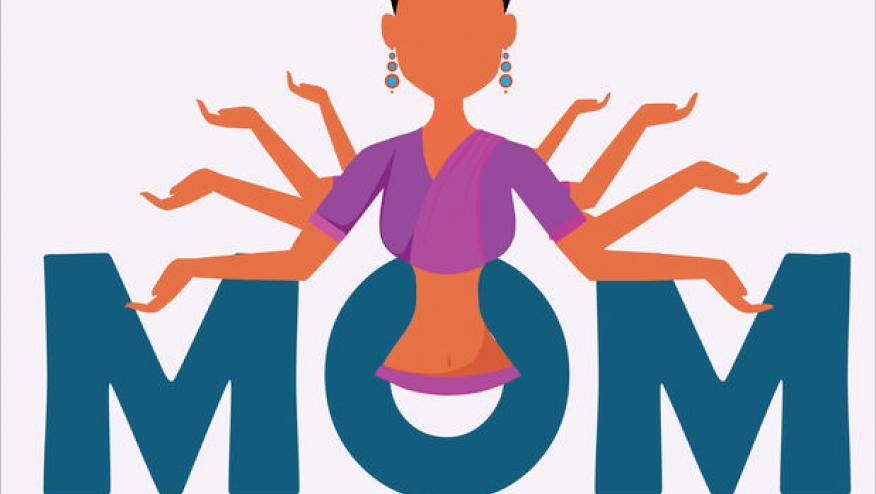Tips from a HomeRheum Mom Save

At the recent ACR 2019 meeting in Atlanta, Georgia, I met some incredible women who shared with me their struggles, sacrifices and success when it comes to balancing a career and family while still retaining their sense of self. Many of you know I am a mother to 3 children ages 15, 12 and 9. The two oldest are girls, and the youngest is a boy. Life can be challenging, especially since my husband has a busy practice, too.
So how do you advance your career and still raise a family? The most productive years in a person’s life is in their 40s, but yet that is when your children need you the most emotionally. My sister-in-law observantly noted that time span daughters typically are learning to control the rage of hormonal changes of menarche is the same period moms are learning to control the rage of menopause—poor husbands! People want to know how I do it. So I will share with you my playbook:
Lesson 1. Set your goals and prioritize. What do you want in life? What do you want for your family? Will you be satisfied with these goals, or are these someone else’s goals for you? How will you get there? I have decided early on, my children are going to come before my career. I had worked part time for many years so that I can attend their dance recitals, soccer games, and school plays. I took a lower salary job in order to have the flexibility of time. Many women do this, and I am starting to see that men are now starting to do the same. The time spent with my children is priceless and no amount of money can persuade me to give up the ability to watch them grow and mold them into confident adults. I will consider myself a success if they 1. have God in their lives 2. are financially independent 3. be socially responsible, and 4. be happy. I understand that in certain circles, putting my family before my career can mean bypassing advancements. It is a conscious sacrifice. Many of the ladies I know had shared horror stories of how they lost a promotion because they decided to get pregnant. Thankfully in rheumatology, our field has become supportive of women. Dr. Konika Monga recently presented a poster about how the number of women lecturers and moderators at the ACR had increased over the years. While this is not reflective of the rheumatology workforce, we are making progress. I herald the men who have been supportive of women in this field.
Lesson 2. Don’t feel guilty. I realized after many years trying to find the right balance between family and work that it is ok to not to feel guilty. It is amazing how physician husbands have the same, if not worse responses as dads who are not physicians. A few years ago, when I was traveling out of town to give a lecture, I got an urgent message to come home immediately. My husband had called and texted multiple time; the plane had only landed when I called him back thinking one of the children was hurt. My husband informed me that I must return home and cancel the lecture. My son was running a fever. I politely reminded him that he is a doctor and can handle it; then he stammered the real reason: my oldest daughter who was 8 years old asked him about sex. Needless to say I turned the airplane mode back on phone and enjoyed the rest of my trip.
Lesson 3. It’s okay to ask for help. If I can clone myself, I would. A few times, I had to rely on others to take my children places, or ask a colleague to do a presentation for me because I could not be there. Asking for help is NOT a sign of weakness. We are all human; we live in a community. If we did not help each other, we would be extinct.
Lesson 4. It’s ok to say, “No.” Even if you are the low (wo)man on the totem pole, sometimes you just cannot do it. People will get upset, but they will get over it, too. A colleague shared her story that while she just had a baby and was exhausted from waking up in the middle of the night breastfeeding, her department chair asked her to write up case reports. While she can pen these out faster than anyone, she just could not do it physically. She was attending rounds, pumping, teaching, seeing patients, trying to take care of her toddler and a baby. Her juggling act was getting precarious; she had so many balls in the air that if one more was added, all the balls would crash. So for the greater good, she declined. Now on the converse to this, say YES when you see a struggling colleague, and it is within your power to help.
Lesson 5. Deescalate. We are so good at what we do. We are perfection. We graduated as valedictorians. We are alpha omega alphas. We fought tooth and nail to be where we are. So why do we all feel like failures when our children do not do well in school, especially in science and math? How can we make our children do better and be successful like us? I spoke with Dr. Gwen Melton, vice chair of the Association of Women in Rheumatology (AWIR). She shared her wisdom with me: “the problem is not your children, the problem is you!” She noted that our children may not be destined to be doctors, but they are destined to be great at what they choose to do, if we don’t get in their way.
Too many of us have tried to “fix” our children. We stay up late to go over their homework, correcting their mistakes; telling them there is nothing wrong with “old” math and that “new” math sucks because we can’t understand it. We are re-learning what predicate nominatives and participle phrases are; we are assembling mock tests to give to our children so they won’t make less than an “A” on their exam—all while charting on patients we saw last week. No wonder we are all so exhausted! We are not doing our children a favor when we don’t let them try and fail by themselves because with failure comes resilience. It is a hard thing to do since we hold the formula to success (if only they would listen). I am slowly learning this lesson.
As moms, we wear many hats for our family: we are drivers, chefs, judges/mediators, event planners, motivational speakers, communication directors, tutors, sports coaches, and doctors/nurses. If you had to post a job for “mom”, you would have to pay her at least $1.5 million dollars annually for all the things a mom does. We used to say that someone is a triple threat if they can see patients, teach, and conduct research. I say that a quadruple threat is one who raises 3 children and a husband.










If you are a health practitioner, you may Login/Register to comment.
Due to the nature of these comment forums, only health practitioners are allowed to comment at this time.